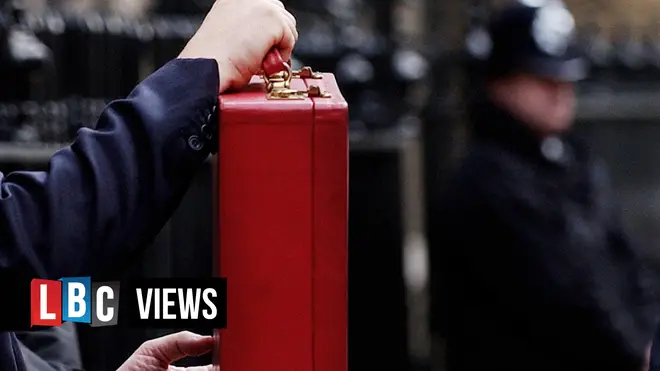
James O'Brien 10am - 1pm
5 March 2024, 07:32 | Updated: 5 March 2024, 07:33

Our chancellor is claiming that borrowing rules prevent him from raising the money to repair our economy, while at the same time pushing for tax cuts which reduce government income.
But these arbitrary rules are imposed by this government on itself and don't actually measure safe levels of borrowing or debt.
Our borrowing rules are out of line with economic reality and get used to justify cuts to our vital public services. We are already living with the consequences of 14 years of underinvestment, as a result of failed austerity policies.
We’ve all been frightened by hearing news of crumbling school buildings, terrifyingly long ambulance waiting times, or soaring numbers of people becoming homeless.
Any tax cuts will be paid for by less funding for local authorities and public services which have already been stripped to the bone. Everywhere you look, from our schools to hospitals to high streets, our country is falling apart at the seams.
Tax cuts won't get us out of economic stagnation, restore our decimated public services, or cut dangerous carbon emissions. And yet the chancellor is apparently considering a tax cut which would hand billions to the richest households while offering much less to those who need it.
Our analysis at NEF has found that a 1p national insurance cut would benefit the richest fifth of households 12 times more than the poorest fifth.
This would cost the government £4.8bn in lost tax money. If they invested this same amount into universal credit, we could lift over 300,000 people out of relative poverty instead.
Voters know this. Recent polling has found that 64% of people in the UK support maintaining or increasing taxes, and only 16% support cutting taxes if it means cutting public services like the NHS.
The majority of us want income from wealth to be taxed just as much as income from work.
The responsible way of running our economy is to borrow to make smart investments that boost our economy and improve people's lives.
And where we can’t borrow, we can also raise money by raising taxes on the very wealthiest.
Investing in our schools, hospitals, housing and infrastructure creates economic benefits - and carbon-cutting measures like wind and solar power, and home insulations, create much more value for every pound spent compared to other investments.
LBC Views provides a platform for diverse opinions on current affairs and matters of public interest. The views expressed are those of the authors and do not necessarily reflect the official LBC position.
To contact us email views@lbc.co.uk